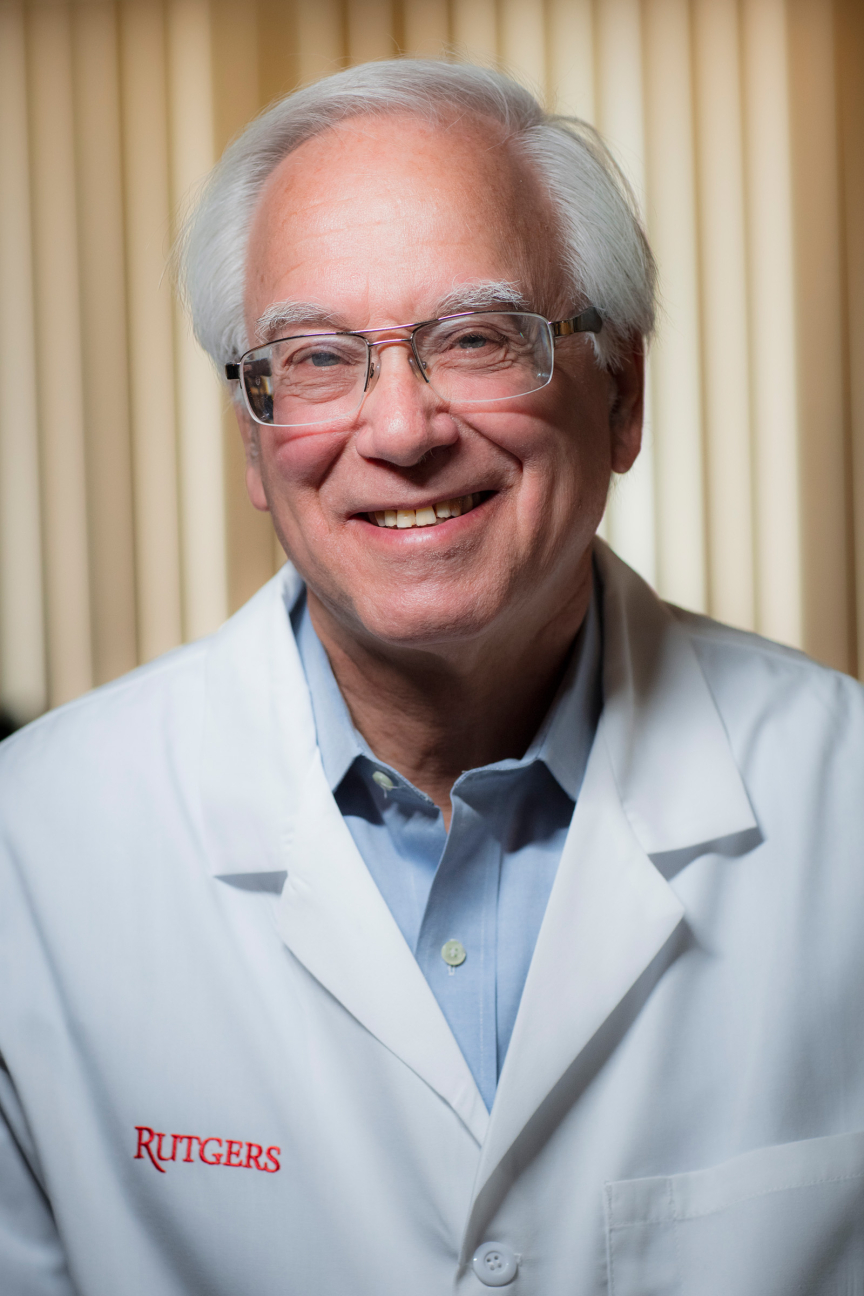Martin J. Blaser to Receive Robert Koch Gold Medal for Contribution to Medicine
Rutgers researcher honored for work on gut bacteria and the global consequences of antibiotic overuse

Martin J. Blaser, director of Rutgers University’s Center for Advanced Biotechnology and Medicine whose research led to new understandings about the beneficial relationships between humans and their microbiome (the microbes that live on and in our bodies), will receive the 2019 Robert Koch Gold Medal for his life’s work, the Robert Koch Foundation has announced.
The foundation cited Blaser’s work on the biology of Helicobacter pylori, a bacterium found in the human stomach. His research was inspired by other scientists’ findings that H. pylori can trigger stomach ulcers, which then led to the widespread idea that the germ should be eliminated to protect human health.
Blaser, the Henry Rutgers Chair of the Human Microbiome and professor of medicine and microbiology at Rutgers Robert Wood Johnson Medical School, contributed to the finding that H. pylori could also cause stomach cancer – but he also asked, in a groundbreaking 1997 Lancet article, whether the germ had its good sides.
The next year he established the Foundation for Bacteria to promote broader studies on the complex role of bacteria. He and his team found the first indications that H. pylori can protect its human hosts against diseases, including esophageal cancer, as well as indications that it helped prevent asthma among children.
“All of a sudden, the biological relationship got more complex,” Blaser said. “Here was an organism that could do both harm and good. And it became clear that it was disappearing at the same time that modern life was advancing. And this had consequences for disease risk.”
Convinced that antibiotics were an important cause for the bacteria’s decline, Blaser began educating medical practitioners and the public about the harms of overusing antibiotics.
“Antibiotics fight microbes that can make us sick and that can kill us. However, we now know that they also have a negative impact. The antibiotics damage our helpful microbes as well — it’s a form of collateral damage. And until now, we had not taken these consequences into account,” he said.
Blaser focused on the importance of a healthy microbiome for development in early childhood, and the damage caused by too-frequent antibiotic use at very early ages. He warned against “extinctions” within the human microbiome that have been contributing to the massive increase in diseases affecting the modern world such as obesity, diabetes, asthma, and allergies. Experiments conducted in his lab showed that antibiotic exposure in early life could play causal roles in obesity, juvenile diabetes and inflammatory bowel disease, through a compromised microbiome.
TIME listed Blaser among the “100 most influential people in the world” in 2015, following the publication of his book Missing Microbes: How the Overuse of Antibiotics Is Fueling Our Modern Plagues.
Blaser will receive the honorary medal at an official ceremony on November 15 at the Berlin-Brandenburg Academy of Sciences and Humanities in Berlin.
The ceremony will also honor Rino Rappuoli, chief scientist and head of external research and development at GlaxoSmithKline Vaccines, who will receive the 2019 Robert Koch Award for his ground-breaking work on the development of novel vaccines that also promote the health of children.
The Robert Koch Foundation is a non-profit foundation dedicated to the promotion of medical progress. It was founded in 1907 and is based in Berlin. The foundation promotes basic scientific research in the field of infectious diseases, as well as exemplary projects that address medical and hygienic issues.